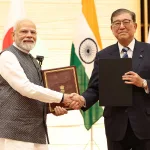Eid al-Fitr, also known as the “Festival of Breaking the Fast,” is one of the most significant Islamic festivals, marking the end of Ramadan, the holy month of fasting. It is a joyous occasion that symbolizes faith, gratitude, and unity. Muslims around the world celebrate this day with prayers, charity, feasting, and social gatherings, reinforcing the values of generosity, self-discipline, and community spirit.
The Significance of Eid al-Fitr
Eid al-Fitr is not just a festival but a spiritual reward for Muslims who have observed fasting, prayers, and devotion throughout Ramadan. It holds deep religious and social significance, making it a day of reflection, renewal, and celebration.
- CELEBRATION OF WORSHIP: Ramadan is a time of spiritual discipline, self-restraint, and increased devotion to Allah (SWT). Completing this sacred month successfully is seen as a major accomplishment, and Eid al-Fitr is the divine reward for the efforts made in fasting, prayer, and seeking forgiveness.
- GRATITUDE TO ALLAH (SWT): Eid is a day to express thankfulness to Allah for granting the strength and patience to observe Ramadan. It is a moment of appreciation for the blessings received and a reminder to continue leading a righteous life.
- CHARITY AND GENEROSITY: One of the key aspects of Eid ul-Fitr is giving to those in need. Islam encourages helping the less fortunate, and this festival emphasizes generosity and social responsibility.
- COMMUNITY AND UNITY: Eid al-Fitr reunites families, strengthens friendships, and fosters community bonds. It promotes forgiveness, kindness, and harmony among
How is Eid al-Fitr Celebrated
Eid al-Fitr is celebrated with various customs and traditions that reflect Islamic values and cultural diversity. The day is marked with special prayers, charity, festive meals, and social gatherings.
- SADQAI FITR: Before performing the Eid prayer, Muslims are required to give Zakat al-Fitr (Sadaqa-e-Fitr), a form of charity that ensures that even the less fortunate can celebrate Eid.
Purpose: It purifies the fasts of Ramadan by atoning for minor mistakes and supports the needy.
Amount: The required amount is usually equivalent to the cost of staple food items like wheat, barley, or dates for one person.
Time of Payment: It must be given before the Eid prayer to ensure that the poor can also partake in the celebrations.
- EID PRAYER (SALAH):A special congregational prayer, known as Salah al-Eid, is performed in mosques or open fields. It consists of two rak’ahs (units of prayer) with additional takbirs (saying “Allahu Akbar”).
Time: It is performed in the morning after sunrise.
Venue: It is recommended to pray in large gatherings, fostering a sense of unity and communal worship.
Khutbah (Sermon): After the prayer, an Imam delivers a sermon highlighting the significance of Eid and Islamic teachings.
- PERFORMING GHUSL (RITUAL BATH) BEFORE PRAYER: Taking a ritual bath (Ghusl) before Eid prayer is a Sunnah (recommended practice), symbolizing purity and preparation for this blessed day.
- DRESSING IN NEW OR CLEAN CLOTHES: Wearing new or clean clothes is encouraged, reflecting renewal, gratitude, and respect for the occasion. Men often wear traditional attire, while women adorn themselves modestly with beautiful dresses.
- EATING SOMETHING BEFORE LEAVING FOR EID PRAYER: It is Sunnah to eat dates or any light food before leaving for the Eid prayer, signifying the end of Ramadan fasting.
- RECITING TAKBEER ON THE WAY TO EID PRAYER: Muslims recite the Takbeer while heading for Eid prayer, glorifying Allah: “Allahu Akbar, Allahu Akbar, La ilaha illa Allah, Allahu Akbar, Allahu Akbar wa lillahi al-hamd.”
- TAKING A DIFFERENT ROUTE HOME AFTER PRAYER: The Prophet Muhammad (PBUH) used to take one route to the prayer ground and return by another as a Sunnah.
- GREETING AND VISITING LOVED ONES: People exchange warm greetings such as “Eid Mubarak” and visit relatives, friends, and neighbors to strengthen social ties and spread joy.
- SHARING FESTIVE MEALS: Delicious traditional foods are prepared and shared with family, friends, and the less fortunate. Each culture has its own Eid specialties, including:
- Sheer Khurma (Sweet Vermicelli Pudding) – A popular dish in South Asia.
- Maamoul (Date-Filled Cookies) – Common in the Middle East.
- Biryani, Kebabs, and Sweets – Enjoyed in various Muslim communities.
- ACTS OF FORGIVENESS AND RECONCILIATION: Eid is an opportunity to mend broken relationships and seek forgiveness, emphasizing peace, kindness, and unity.
- NO FASTING ON EID: No Muslim is supposed to fast on Eid, as it is a day of celebration and feasting.
- ENGAGING IN ACTS OF WORSHIP AND GRATITUDE: Even after Ramadan, Muslims are encouraged to continue praying, reading the Quran, and making supplications to maintain their spiritual growth.
Cultural Variations in Eid Celebrations
While the core religious observances remain the same, Eid al-Fitr is celebrated with unique cultural traditions across different regions. In some countries, public celebrations, parades, and grand feasts mark the occasion, while others focus on communal prayers and intimate family gatherings.
The Essence of Eid al-Fitr
Eid al-Fitr is more than just a festival; it is a spiritual reminder of the values emphasized during Ramadan—self-discipline, gratitude, compassion, and unity. It strengthens social bonds, encourages generosity, and fosters a sense of belonging in the Muslim community.
By observing the customs and traditions of Eid al-Fitr, Muslims reaffirm their commitment to faith, charity, and righteousness. As they celebrate with loved ones, they carry forward the lessons learned during Ramadan and strive to continue acts of kindness, patience, and devotion throughout the year.
Conclusion
Eid al-Fitr is a time of immense joy, reflection, and gratitude. It brings families, friends, and communities together in the spirit of worship and generosity. Through prayers, charity, festive meals, and social gatherings, Muslims celebrate not only the completion of Ramadan but also the opportunity to renew their faith and strengthen their bonds with one another.
As we embrace the spirit of Eid al-Fitr, may we continue to uphold the values of compassion, unity, and gratitude in our daily lives. May Allah (SWT) accept our fasting, prayers, and good deeds, and bless us all with a joyous and meaningful Eid al-Fitr. Ameen!
(The author is a Freelancer and National TV debater. He can be reached at: [email protected])








